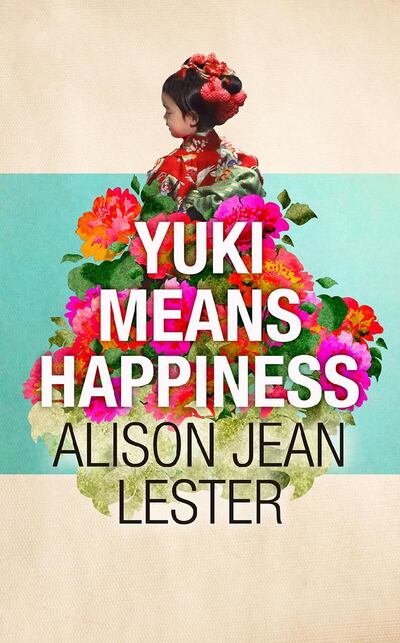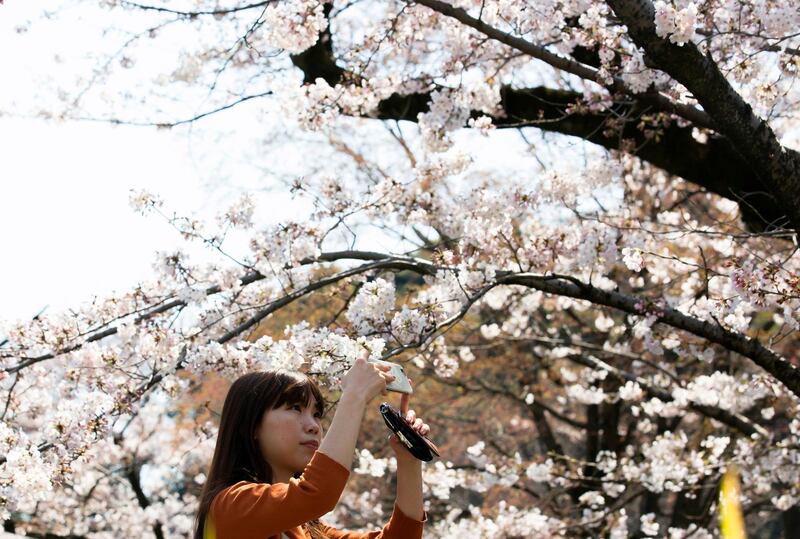The motherhood novel is blooming, especially in the form of those that present a multi-faceted portrait of the role. It's rarer, however, to find interesting and subtle depictions of what it's like to look after someone else's child.
We're all familiar with the magical story of Mary Poppins, and you have probably also heard of the satirical hit The Nanny Diaries, which made the bestseller lists in the early 2000s through its exposure of the demands of wealthy Upper East Side Manhattanites. Yet when it comes to literary fiction, the specimens are few and far between. Jamaica Kincaid's Lucy, for example, the story of a young Caribbean woman who goes to New York to be a nanny in the 1990s, or Marcy Dermansky's racy Bad Marie, a tale of envy between old school friends which turns toxic when one woman is hired by the other to look after her child.
As such, Yuki Means Happiness, Anglo-American author Alison Jean Lester's exquisite second novel, is a very welcome addition to the genre. Lester's narrator is Diana, a 24-year-old American nurse at a hospital in Boston. She is recently qualified and still finding her feet in life, most notably romantically and professionally.
She is "on the fence" about her career – she is working in geriatrics, but wants to pursue pediatrics – thus enticed by a short-term job offer to look after a first-time mother and her newborn daughter. Her employers are a Japanese couple who have briefly relocated to the United States for the birth of the baby to ensure the new arrival dual citizenship. Diana spends an uneventful month with the family – Naoki and Emi Yoshimura and baby Yuki – then they return to Japan, and she goes back to nursing.
Two-and-a-half years later, Naoki reappears, this time offering Diana the permanent role of nanny to the now two-year-old Yuki, but in Tokyo. His marriage is over, he explains, Emi has left them, so he needs someone to look after his daughter and teach her English. Diana accepts. She is curious to see Yuki again, plus she sees a rare "opportunity for an adventure", somewhere far away from the world and life she is used to.

Lester's depiction of Diana's increasing attachment to Yuki is beautifully rendered, the complexities of the relationship – the love between them that is both everything and nothing – pulled taught and tight. "I fell into bed each night, exhausted by both the physical and the emotional act of caring for her," Diana explains, "but I woke up excited to see her in the morning, every morning."
She can't imagine how someone could love Yuki more than she does, "but I knew Emi had to," she reluctantly admits. The situation is so confusing, though; Emi hasn't fought to see her daughter – Japanese custody cases and family courts appear to be very different from their American counterparts. Naoki is the one with all the rights. Thus, when his behaviour starts to alarm Diana, she finds herself forced to take Yuki's safety into her own hands.
Despite its darker undercurrents – and there are moments of pure devastation here – the novel is also very much a love letter to Japan. Lester has the most wonderful eye, capturing the little details of Diana's alien new life with such simplicity and precision as to capture a rare beauty in the everyday.
The clarity of her prose performs a mysterious – and ostensibly effortless – alchemy that transforms the very experience of reading the narrative into what feels like an immersion in Japanese culture and life.
Key to this is Lester's use of extremely tactile descriptions, whether in the detail of Diana attending to Yuki's discarded clothes during her swimming class – "I held her tights up with one hand and pulled the toes down so they were even, then I folded them over and rolled them tightly, tucking them in between her shoes. Doing so made me feel less of a clumsy giant, and strangely pretty" – or when walking along a street, past a restaurant from within which the "broth smelled old, the long onions bitter", she sniffs the air outside each of the other establishments "to locate one that smelled sweeter".
Like the waitress who pulls the bottom of her kimono "into the perfect position" for kneeling by Diana's table in a restaurant, Lester has constructed her novel like an elegant, piece of origami, every element deftly arranged into something as close to perfection as I can imagine.
__________________________
READ MORE:
[ Book review: Erika Rappaport's A Thirst for Empire: How Tea Shaped the Modern World ]
[ Book review: Fiona Melrose's Johannesburg ]
[ Book review: Rock in a Hard Place: Music and Mayhem in the Middle East by Orlando Crowcroft ]
__________________________






